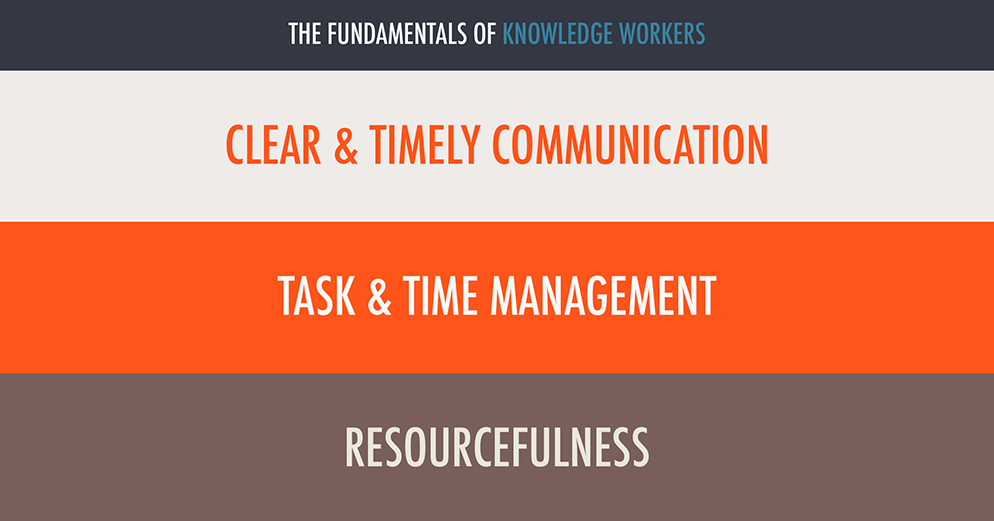Whenever I think about fundamentals, I’m reminded of an interview that basketball player Andrew Bogut had on the Bill Simmons podcast in which he talked about the Warriors and how they practiced:
I still remember the first training camp we had under coach Kerr. We were doing basic passing drills into the passing net, like left-handed passes, right-hand, overhead, and doing dribbling drills through cones, and a lot of guys were pissed because they were like, “Hey, we’re NBA guys, we don’t need to be doing this stuff.” But coach Kerr was like, “No, we’re going back to basics. You guys turn the ball over way too much. If we can limit our turnovers and just turn it over four or five times less per game, we’re going to win a championship.”
Guys were kind of like, “Ugh, we don’t want to do these petty little drills,” but after a couple of weeks I think guys understood what he was trying to relay onto us. And it was genius in a way, because it’s just instilling the little things, like making the right pass, getting to a jump-stop, hitting your teammate on the chest so that he can get a nice rhythm into his jumper, and it just worked out perfectly.
The takeaway here is that in order to better execute sophisticated plays and run a certain type of system, everyone on the team must have sound fundamentals and avoid making costly mistakes that get in the way of clean, effective execution.
I’ve been thinking about the “fundamentals” of the team at Barrel and if we’ve been giving enough attention to the things that enable us to effectively execute complex projects like platform builds and multi-channel marketing campaigns. In our line of work, it’s easy to get caught up with someone’s smooth in-meeting presence or their effortless use of technical jargon. Such feats of “performance” might be praiseworthy, but they may also mask gaps in the day-in-day-out stuff that makes projects run smoothly.
I’ve tried to come up with a more generalized set of basic skills that apply to all knowledge workers (a Peter Drucker-coined term to describe people whose main capital is knowledge). These are what essentially make up the “day-in-day-out stuff”:
- Clear and timely communication: the ability, in speech and writing, to articulate questions, actions, and responses that convey information to team members and clients/customers without vagueness or confusion, and to do so consistently within the appropriate timeframe; also, sound communication fundamentals means checking for spelling and grammar errors and making sure vocabulary and technical terms are used correctly (the discipline to proofread).
- Task and time management: the ability to keep track of assignments and manage one’s own calendar/schedule in order to meet deadlines and effectively plan work blocks throughout the day and week; if you said you were going to do it, you find a way to do it.
- Resourcefulness: the ability to leverage different sources (e.g. team members, Google, past projects, etc.) and to synthesize findings in order to come up with viable solutions, especially in situations of uncertainty; the findings may not be the end-all-be-all solution, but it’s enough to make progress and to get useful feedback that’ll further move things along.
Imagine trying to “practice” these skills with a team of knowledge workers. I wonder how our team might feel about training sessions on writing good email communications, using a calendar effectively, or doing smart Google searches. Would they initially groan like the Warriors players did at the prospect of doing basic dribbling and passing drills? Would they then appreciate and embrace the training because it tightens their fundamentals and helps them be better at their jobs?
As basic as the “fundamentals” I’ve outlined may sound, I have a feeling that many business owners, if they were to evaluate their teams and rate their employees on each of these areas, may find gaps and deficiencies that are hampering the overall performance of the team.
To bring it back to basketball, think about the talented and athletic forward with the huge wingspan and killer hops who has shown great promise (flashy drives to the basket and very athletic moves in transition) but continues to make silly turnovers with careless passes, is terrible at switching on pick-and-roll defense, and is often mindless about floor spacing and getting into the right position for set plays. A player’s lack of discipline in these fundamentals can really mess up the flow of the team and nullify the strong performances of others. As a coach, you may be tempted to keep the player in because there’s so much “upside” but shaky fundamentals may erode your confidence in that player over time.
Likewise, a knowledge worker who doesn’t communicate well, who doesn’t get assignments done on time, and doesn’t make the necessary attempts to figure out problems on their own will cost the business additional time and resources to manage.
When we hire promising talent with impressive experience and credentials, we rarely question their fundamentals and take them for granted. Of course they’ll be great at communicating or managing their time. Of course they’re natural problem-solvers. Otherwise, how else would they have progressed in their careers? And in most cases, the assumptions will be true. But, as Kerr and Warriors demonstrate, it’s not a bad idea to refresh ourselves on the fundamentals every now and then and make sure we’ve got the proper zip and crispness on our chest passes.
For those who are curious, here’s a list of fundamental skills in basketball that I came across on a site for new players and coaches:
- Shooting
- Passing
- Dribbling
- Lay ups
- Jump stops
- Pivoting and footwork
- Jab steps
- Screening
- Cutting
- Defense
- Rebounding
